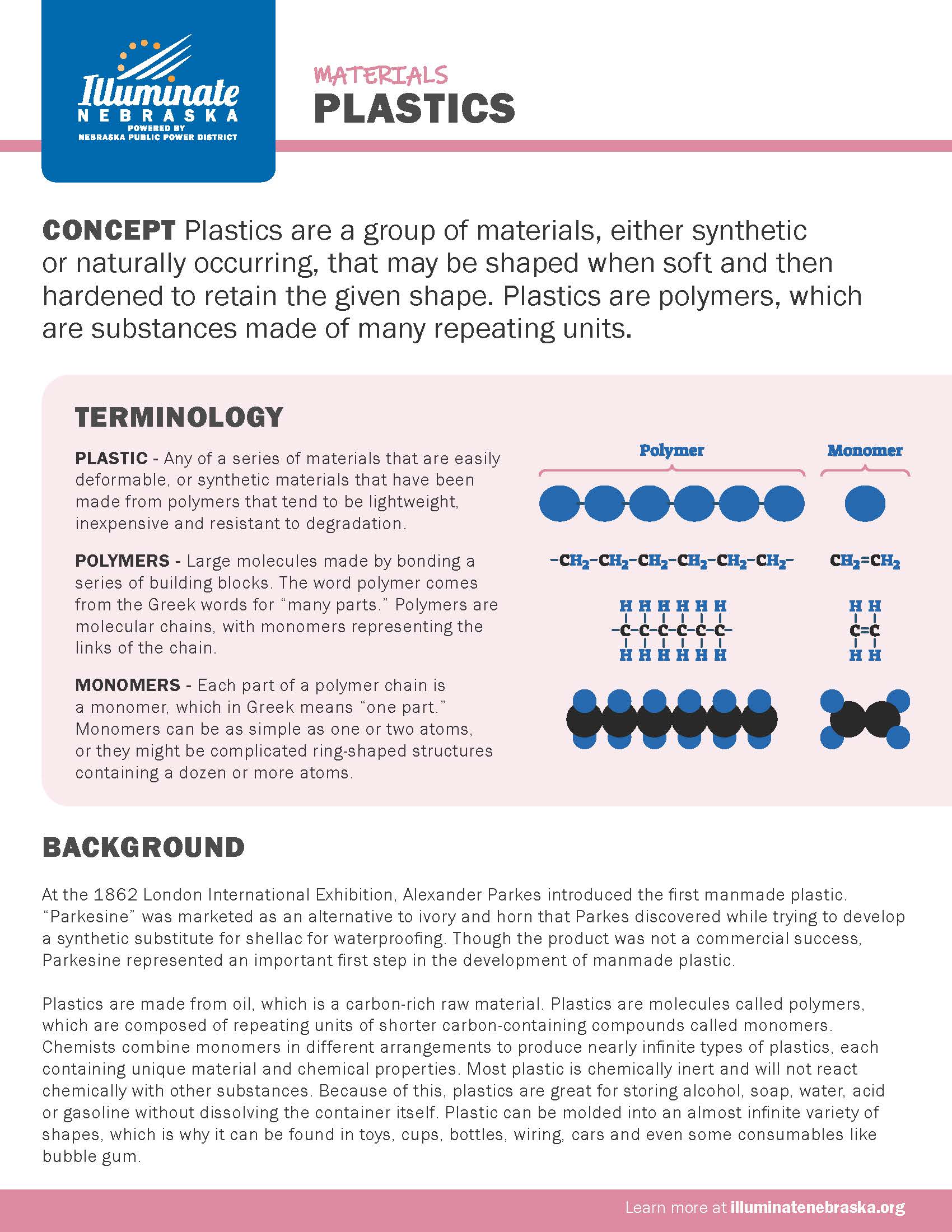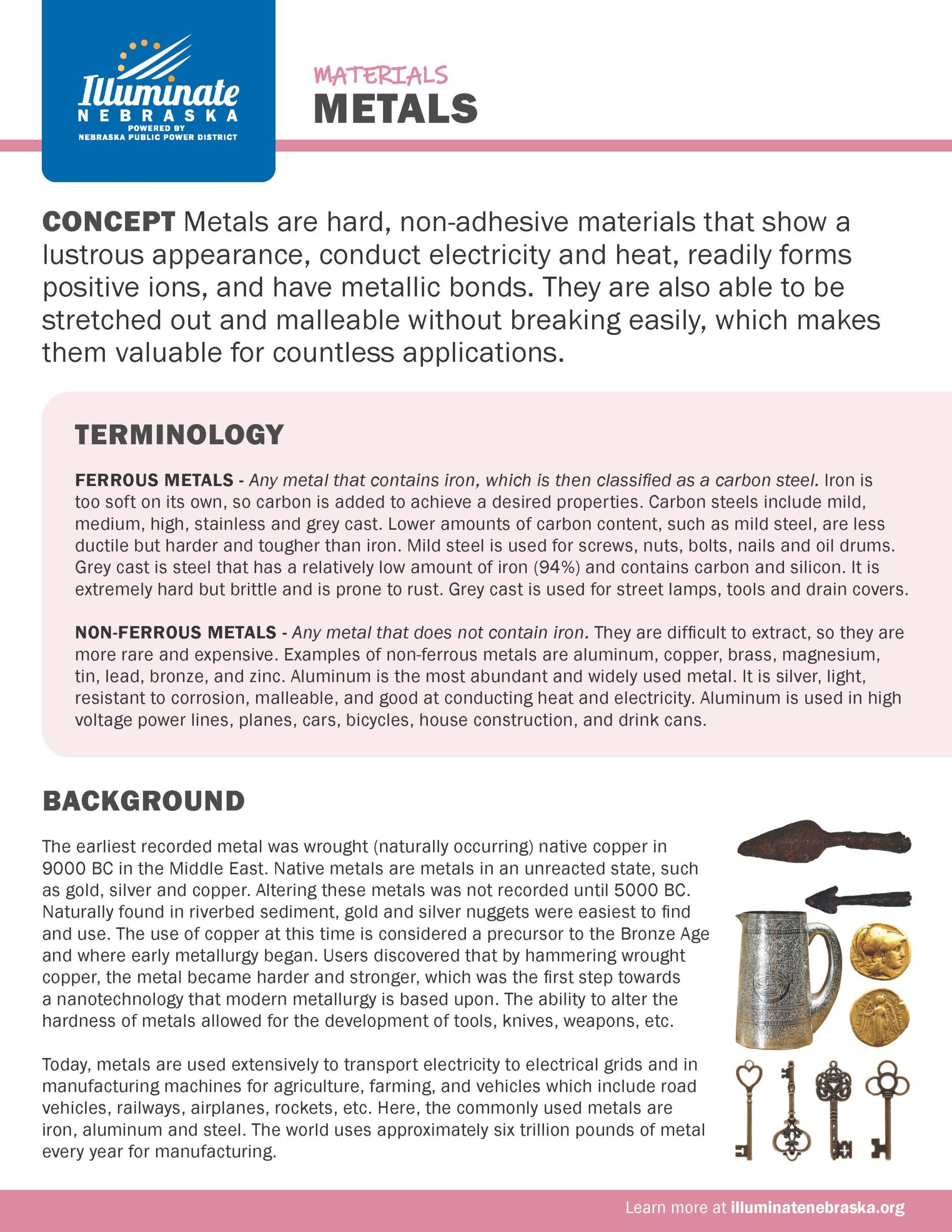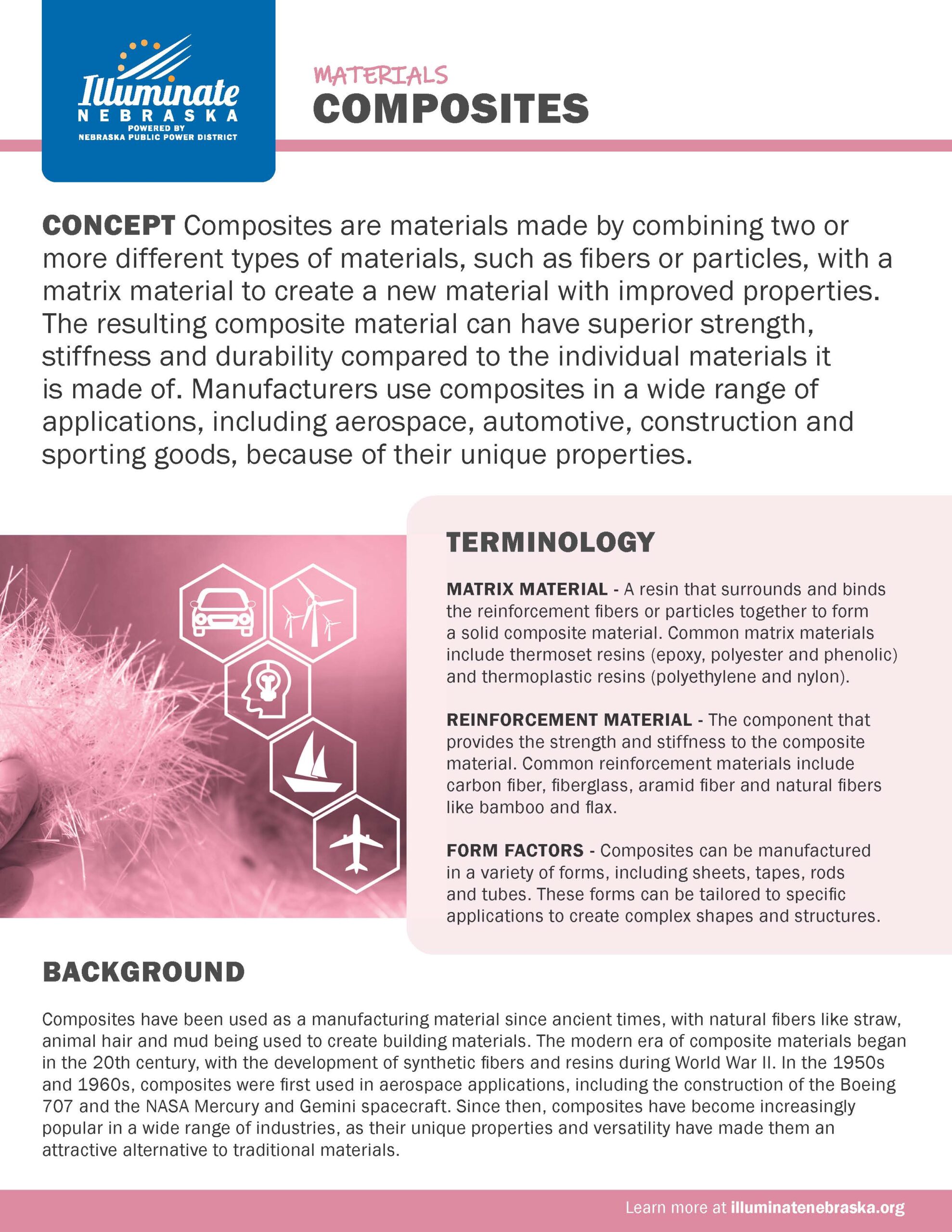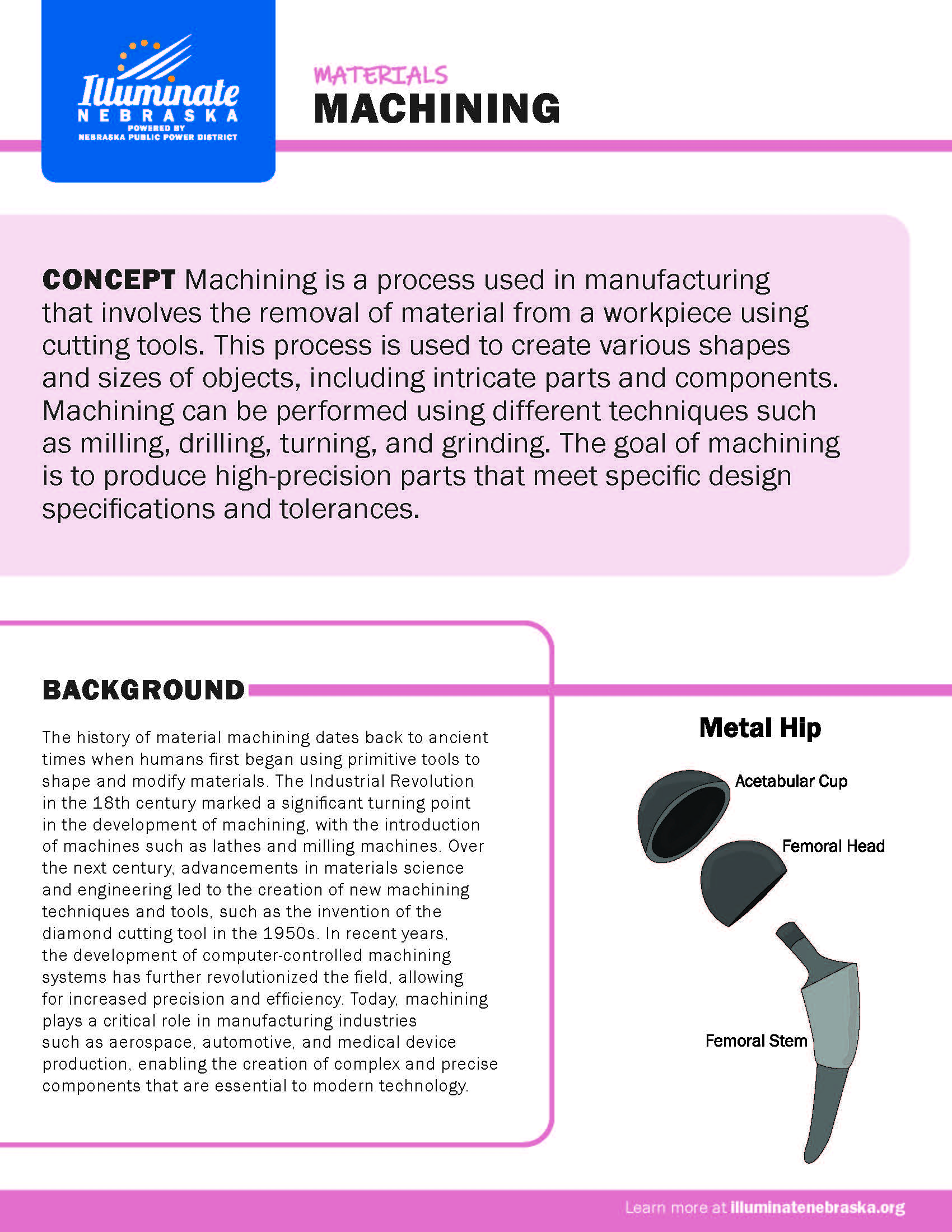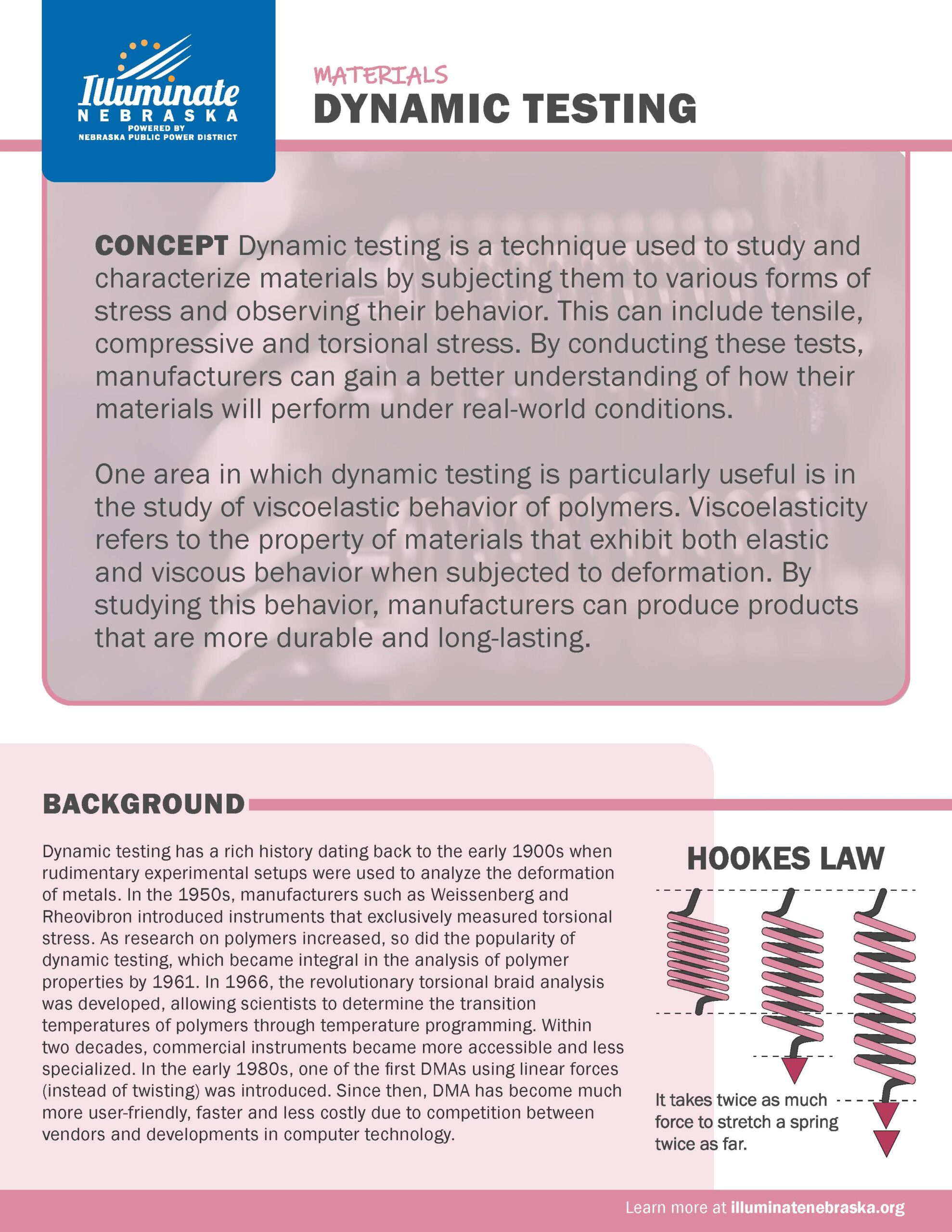Plastics
Plastics are a group of materials, either synthetic or naturally occurring, that may be shaped when soft and then hardened to retain the given shape. Plastics are polymers, which are substances made of many repeating units.
Metals
Metals are hard, non-adhesive materials that show a lustrous appearance, conduct electricity and heat, readily forms positive ions, and have metallic bonds. They are also able to be stretched out and malleable without breaking easily, which makes them valuable for countless applications.
Composites
Composites are materials made by combining two or more different types of materials, such as fibers or particles, with a matrix material to create a new material with improved properties. The resulting composite material can have superior strength, stiffness and durability compared to the individual materials it is made of.
Machining
Machining is a process used in manufacturing that involves the removal of material from a workpiece using cutting tools. This process is used to create various shapes and sizes of objects, including intricate parts and components. Machining can be performed using different techniques such as milling, drilling, turning, and grinding. The goal of machining is to produce high-precision parts that meet specific design specifications and tolerances.
Dynamic Testing
Dynamic testing is a technique used to study and characterize materials by subjecting them to various forms of stress and observing their behavior. This can include tensile, compressive and torsional stress. By conducting these tests, manufacturers can gain a better understanding of how their materials will perform under real-world conditions.

